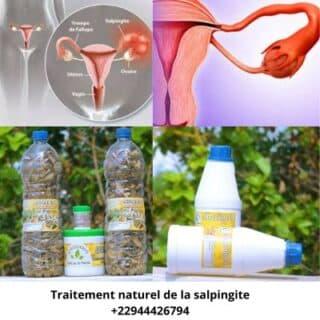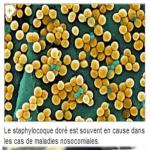
Ovarian failure and female infertility
- By narso10
- On 2025-08-29
- 0 comments
Ovarian failure refers to the loss of normal ovarian activity before the expected age of menopause. Normally, the ovaries play two vital roles: producing oocytes (eggs) for reproduction and secreting hormones such as estrogen and progesterone, which regulate the menstrual cycle and reproductive health.
However, in ovarian failure, these functions are impaired. As a result, ovulation becomes irregular or stops altogether, leading to reduced fertility and symptoms related to estrogen deficiency. Unlike natural menopause, which usually occurs around the age of 50, ovarian failure is considered abnormal when it appears before the age of 40. Ovarian failure and female infertility , please to join us hier to know more about Ovarian failure and female infertility .
Causes of Ovarian Failure
The etiology of ovarian failure is diverse, and in many cases, the exact cause remains unknown. Nevertheless, several factors have been identified:
Genetic causes: Conditions such as Turner syndrome or specific gene mutations can lead to premature depletion of ovarian follicles.
Autoimmune disorders: The immune system may mistakenly attack ovarian tissue, causing inflammation and destruction of follicles.
Medical treatments: Chemotherapy, radiotherapy, or certain surgeries can damage ovarian cells and compromise fertility.
Idiopathic cases: In a significant number of women, no identifiable cause is found, making the condition particularly challenging to predict and prevent.
Clinical Manifestations
The clinical presentation of ovarian failure is often progressive. At first, women may notice irregular menstrual cycles, which can eventually progress to complete amenorrhea (absence of menstruation). In addition, symptoms of estrogen deficiency, such as hot flashes, night sweats, vaginal dryness, decreased libido, and mood disturbances, are commonly reported.
Most importantly, ovarian failure is strongly associated with female infertility. Since ovulation is disrupted and the ovarian reserve is diminished, the ability to conceive naturally is significantly reduced.
Ovarian Failure and Infertility
It is well established that the ovaries are central to female fertility. When they fail prematurely, two major issues arise. First, the lack of viable oocytes makes fertilization difficult. Second, the hormonal imbalance affects the endometrium, the uterine lining where implantation occurs, thereby lowering the chances of successful pregnancy.
Consequently, ovarian failure is one of the leading causes of infertility among women of reproductive age. The psychological and social consequences can also be profound, as infertility often carries emotional distress and stigma in many cultural contexts.
Diagnosis
Diagnosing ovarian failure involves a combination of clinical evaluation and laboratory tests. Typically, doctors measure levels of reproductive hormones, especially the follicle-stimulating hormone (FSH), which is usually elevated in this condition. Low estrogen levels and reduced anti-Müllerian hormone (AMH) values also support the diagnosis. Additionally, pelvic ultrasound helps assess ovarian volume and the number of antral follicles, both of which are reduced in affected women.
Management and Treatment
Currently, no treatment can fully restore normal ovarian function. However, several strategies exist to manage symptoms and improve fertility outcomes:
Hormone replacement therapy (HRT): This is used to relieve menopausal symptoms such as hot flashes and vaginal dryness and to protect bone and cardiovascular health.
Assisted reproductive technologies (ART): For women wishing to conceive, in-vitro fertilization (IVF) using donor eggs represents the most effective option.
Fertility preservation: Women at risk (for example, before undergoing chemotherapy) may choose to freeze their eggs or ovarian tissue for future use.
Psychological support: Counseling is strongly recommended, as infertility can lead to anxiety, depression, and relationship difficulties.
Research and Future Perspectives
Scientific research is continuously exploring new therapeutic avenues for ovarian failure. Experimental approaches such as ovarian tissue transplantation, stem-cell therapies, and in-vitro maturation of follicles are under investigation. Although these methods are not yet widely available, they bring new hope for restoring fertility in affected women.
Conclusion
In conclusion, ovarian failure is a complex condition that significantly contributes to female infertility. While its causes may be genetic, autoimmune, or treatment-related, the consequences are invariably profound, affecting both reproductive capacity and overall health. Nevertheless, thanks to advances in assisted reproductive technologies and ongoing research, many women still have opportunities to achieve motherhood. At the same time, emotional and psychological support remains a cornerstone of care, ensuring that women facing ovarian failure are not only treated medically but also supported holistically.
Please to join us hier to know more about O
Ovarian failure and female infertility natural treatment .
Ovarian failure and female infertility natural treatment .
Natural Treatment Approaches
1. Dietary and Nutritional Support
A fertility-friendly diet can nourish the ovaries and regulate hormonal activity:
Phytoestrogen-rich foods: Flaxseeds, soy, chickpeas, and lentils may help balance estrogen.
Antioxidant-rich fruits and vegetables: Blueberries, spinach, kale, and carrots combat oxidative stress that can damage ovarian cells.
Healthy fats: Omega-3 fatty acids from fish, walnuts, and chia seeds support hormone synthesis.
Adequate protein: Legumes, eggs, and lean meat promote cellular repair.
Supplements: Coenzyme Q10, Vitamin D, Vitamin E, folic acid, and selenium are often recommended to enhance ovarian function.
Add a comment








